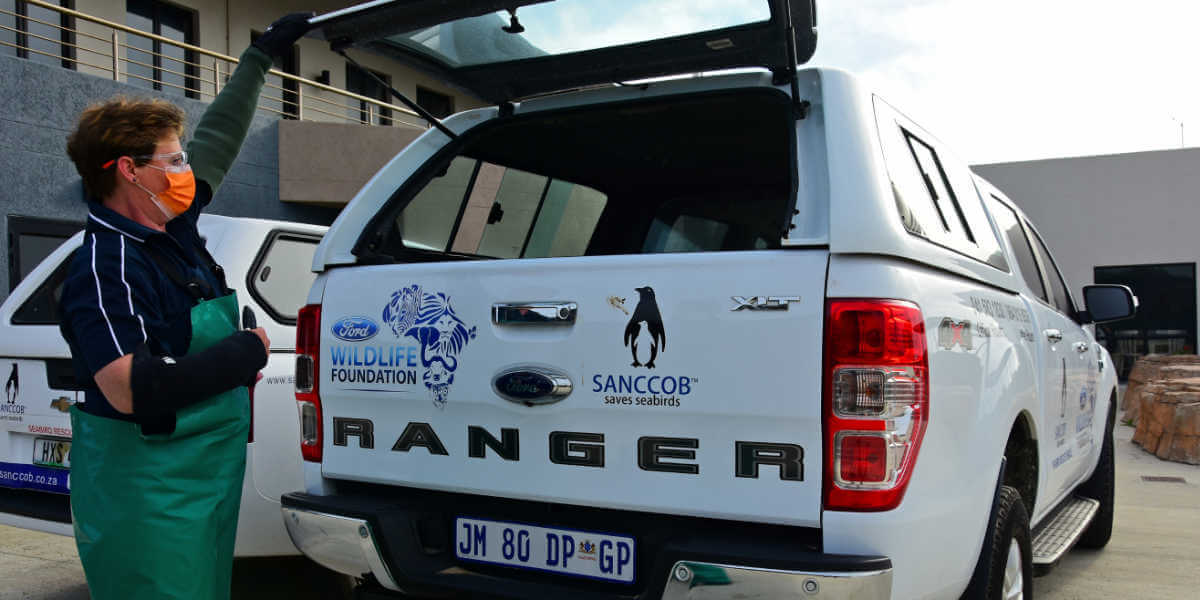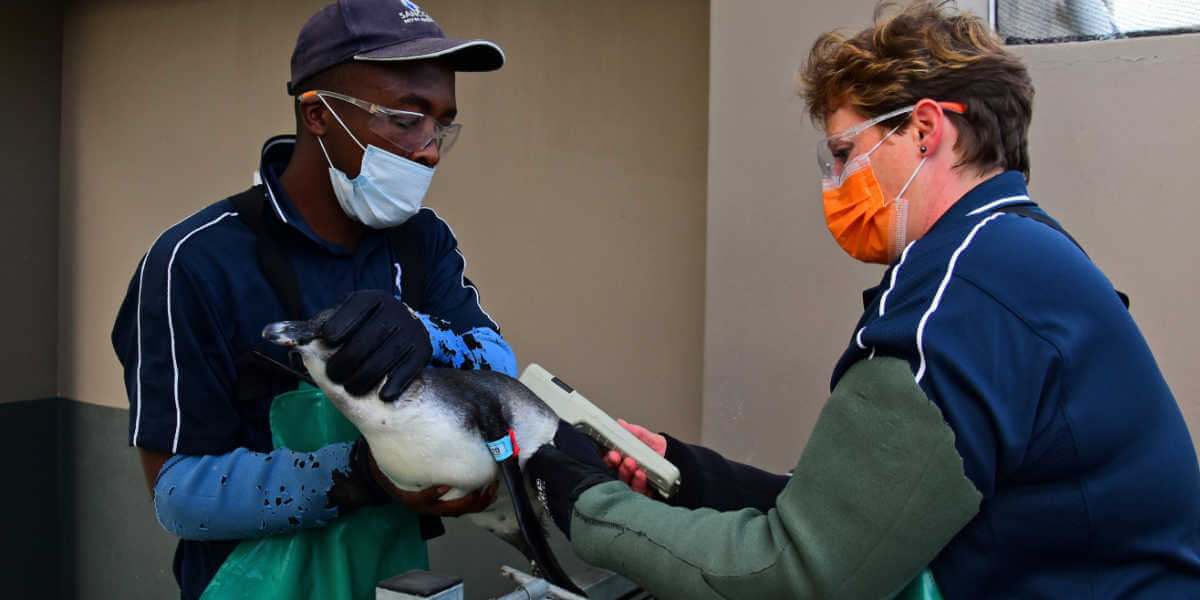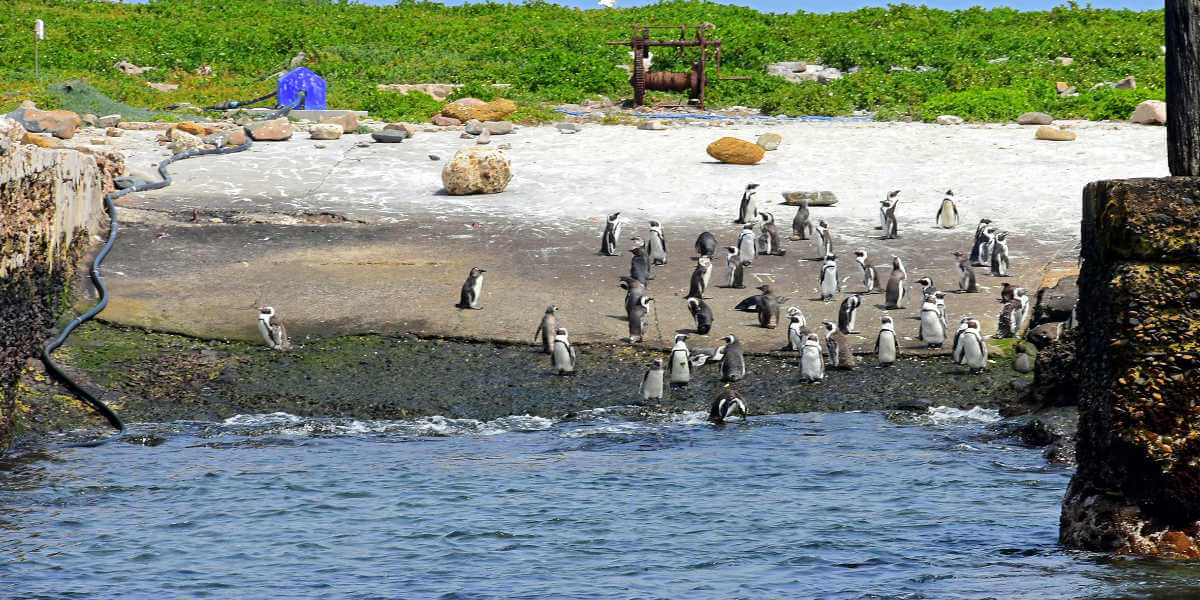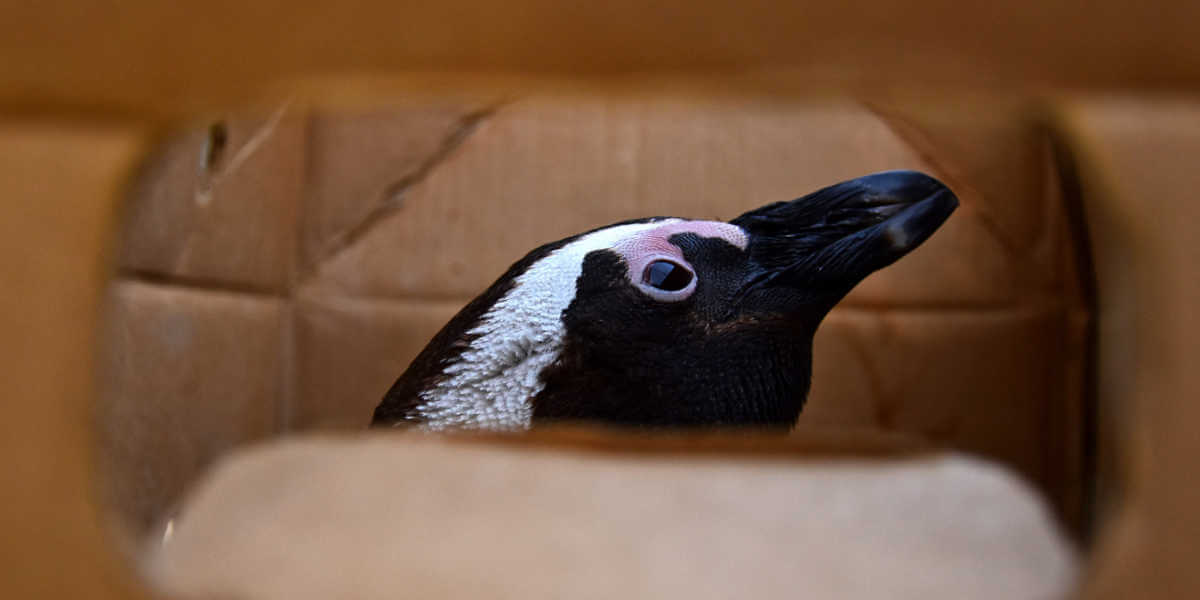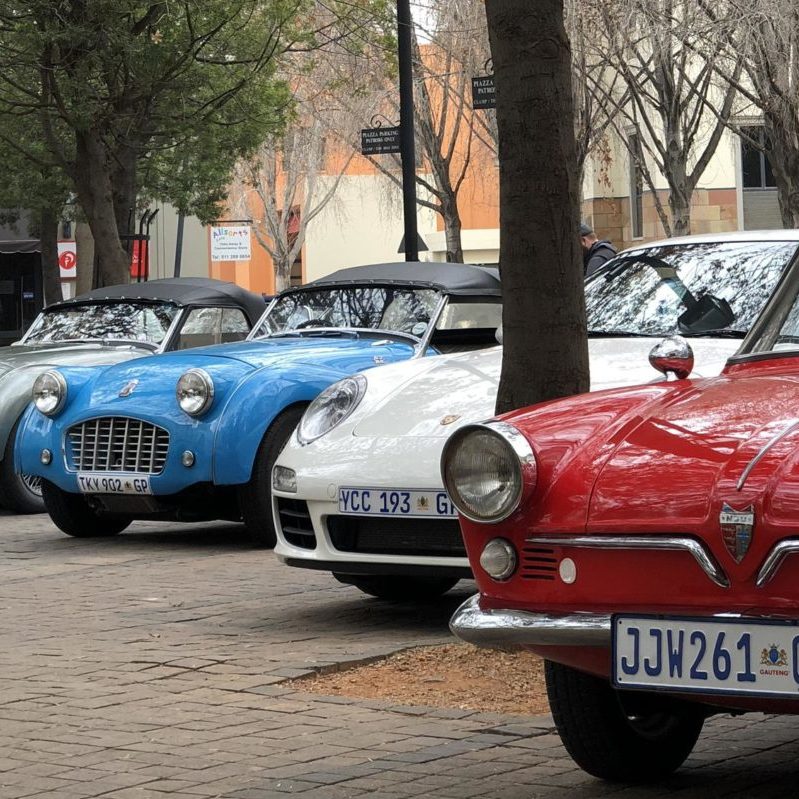Ford Wildlife Foundation Supports SANCCOB in Gqeberha
The Ford Wildlife Foundation (FWF) has extended its support for the Southern African Foundation for the Conservation of Coastal Birds (SANCCOB) in Gqeberha through the contribution of R50 000 towards its Save the African Penguin project – a fitting cause, considering it was international African Penguin Day on 9 October.
The SANCCOB penguin rescue project has been tackling the food crisis that has had a severe impact on penguin and seabird populations, many of which occur naturally on Bird Island and St Croix Island in Algoa Bay, off the coast of Gqeberha.
“We have rescued a total of 202 penguin chicks and juveniles over a period of a month from Bird Island due to a lack of food,” explains Margot Collett, manager of the SANCCOB Gqeberha Centre. “African penguins feed on small fish such as sardine and anchovy. With fish stocks being depleted due to a combination of climate change and industrial fishing, the current decline in penguin numbers, including that of breeding pairs, is very worrying.”
“All of the rescued birds are taken to our SANCCOB centre and treated for dehydration and emaciation, as well as for any injuries,” Collett says. The penguins are tube-fed by the dedicated SANCCOB team until they gain sufficient weight, and are graded to test if they are ready to be released. The SANCCOB Gqeberha Centre recently launched a new purpose-built rehabilitation pool with six pens, which allows the penguins to get the necessary swimming time that is essential for the waterproofing of their feathers.
“SANCCOB values its partnership with the Ford Wildlife Foundation through providing the Ford Ranger that we use for our important conservation work, and we are incredibly grateful for the contribution we received for this intervention,” Collett says. “Support of this nature is extremely important as it contributes to our veterinary and rehabilitation efforts to protect the dwindling African penguin population in Algoa Bay. We are delighted that many of the rehabilitated birds have been released back to Bird Island to form part of the future breeding population.”
Thus far the team has returned two large groups, comprising a total of 88 penguins, to Bird Island since the project began in August. The rate of recovery for the remaining birds has been staggered, and they are being released once they are healthy and strong enough to survive on their own.
Algoa Bay is a marine biodiversity hotspot, and its seabird breeding islands fall within the declared Addo Marine Protected Area (MPA). The St Croix and Bird Islands together account for more than 45-percent of the total African penguin population in South Africa and are of crucial importance to the survival of this iconic and endangered seabird. Bird Island is also home to the world’s largest colony of Cape gannets.
“The SANCCOB team does exceptional work to protect the endangered African penguin and other seabirds, and we applaud their tireless efforts to rescue, rehabilitate and return the birds to their natural habitat,” says Lynda du Plessis, manager of the Ford Wildlife Foundation. “The dedication of the team to caring for these penguins plays an important role in their survival, and we encourage other companies and individuals to support the vital work they do.”
SANCCOB is a registered non-profit organisation whose primary objective is to reverse the decline of seabird populations through the rescue and rehabilitation of ill, injured, abandoned, and oiled seabirds – especially endangered species like the African penguin. In a normal year where no oil spills occur, SANCCOB treats up to 2 500 seabirds.
The SANCCOB Gqeberha Centre is based in the 366-hectare Cape Recife Nature Reserve on Marine Drive in Summerstrand, with its pristine beach and 170-year-old lighthouse being key tourist attractions. The facility is open to the public, and provides educational tours and popular daily feeds for the penguins as one of its most important fund-raising mechanisms. Along with the new rehabilitation pool, the facility is equipped with a seabird hospital with a surgical theatre and intensive care unit (ICU).
According to SANCCOB, from a global population of roughly one million breeding pairs at the beginning of the 20th century to just 20 000 breeding pairs today, it is estimated that at the current rate of decline, African penguins in the wild could be functionally extinct in the next two decades.
To address this critical issue, in December 2019 SANCCOB and South African National Parks (SANParks) appointed a Penguin and Seabird Monitor in the Addo Elephant National Park Marine Protected Area (MPA). The monitor is stationed on Bird Island, and looks after the seabird colonies on St Croix Island and Bird Island which fall within the Addo MPA. St Croix is currently home to the largest breeding population of African penguins in the world.
Through this project, the team is able to identify and rescue sick, injured, and oiled birds as well as abandoned penguin chicks to ensure that they are admitted timeously for treatment and rehabilitation at the SANCCOB facility.
For over 30 years, Ford Motor Company of Southern Africa (FMCSA) has actively been involved in the conservation of wildlife and ecosystems in South Africa and sub-Saharan Africa. The Ford Wildlife Foundation (FWF), which was established in 2014, continues FMCSA’s long-standing support of conservation projects in Southern Africa through the provision of ‘Built Ford Tough’ 4×4 Ranger Double Cabs to partner organisations. During the two-year loan period, the vehicles are monitored and serviced by Ford’s extensive dealer network to ensure optimum performance and efficiency.
For more information on SANCCOB’s Save the African Penguin project, visit their website here.
Article by Ford on Quickpick.

